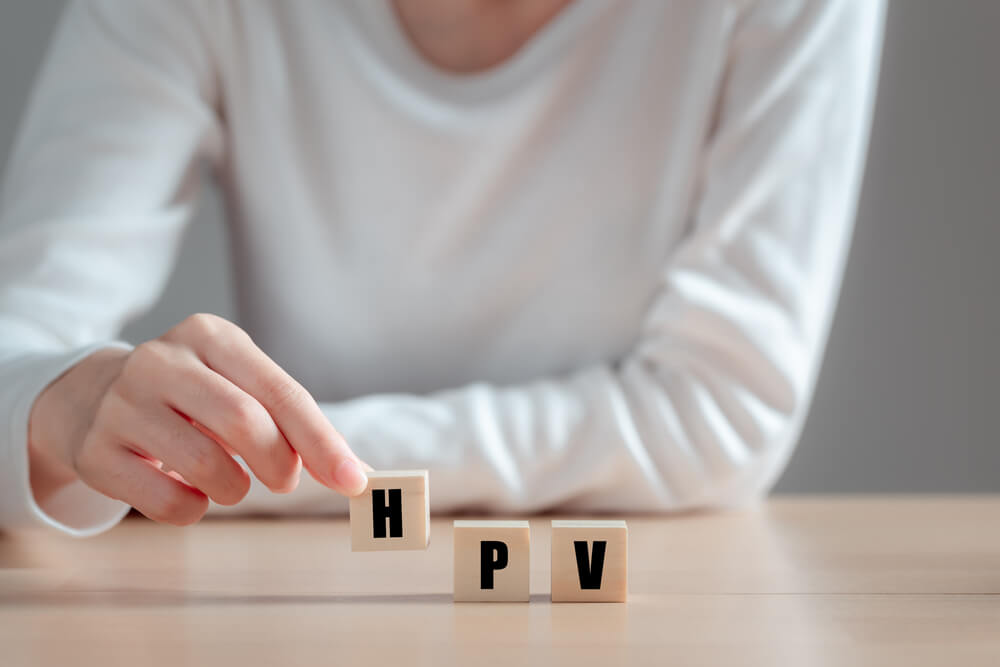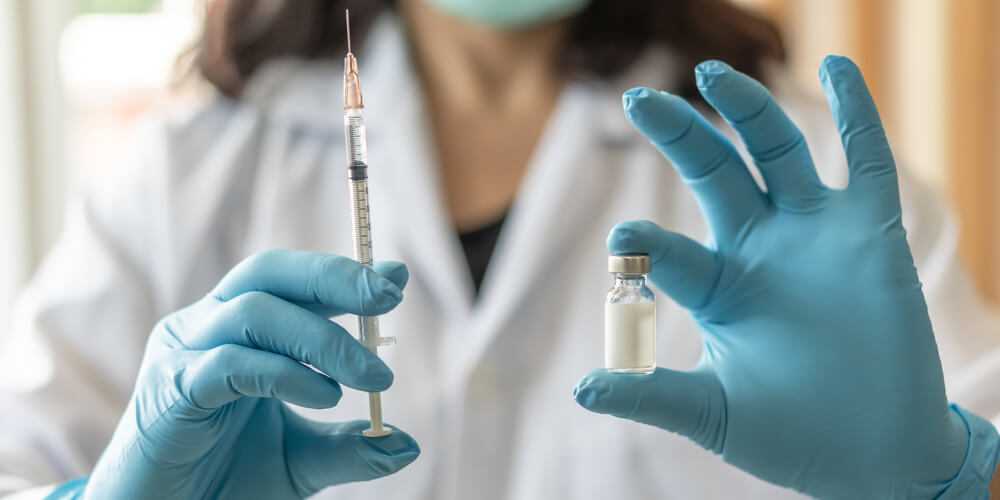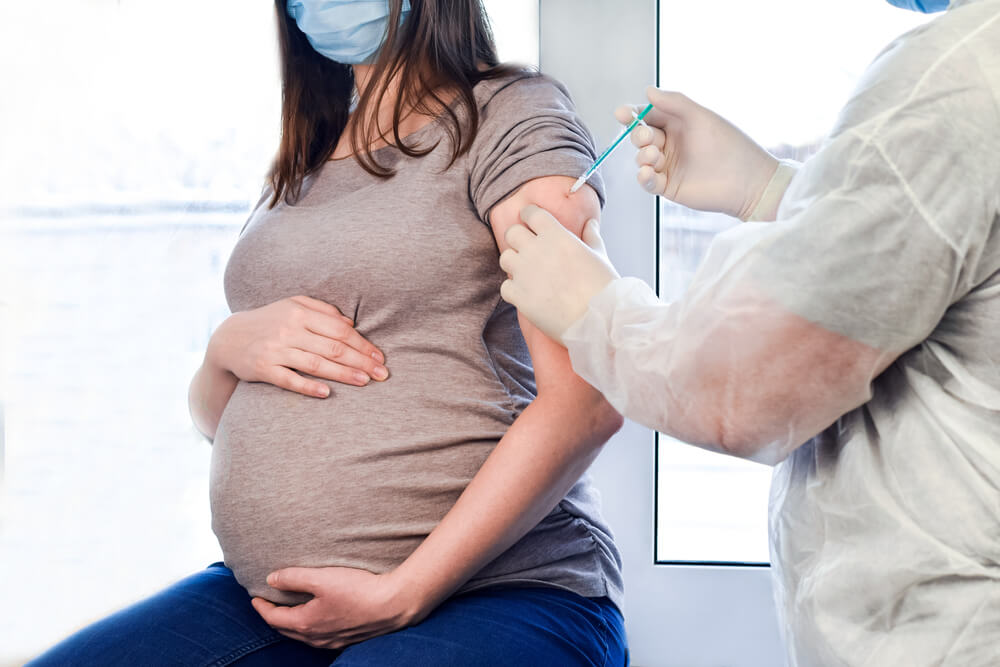Pregnancy is an exciting time. The feeling of a little one growing inside you is both empowering and humbling all at once. Still, it’s important to remember this period’s impact on your immune system. Yes, pregnancy can lower your body’s ability to defend itself against the everyday invisible dangers it faces regularly. Remember, in order for an embryo to successfully implant, immune cells must flood into the lining of the womb. This heightened state of your immune system lasts for the first 12 weeks of pregnancy to allow the embryo to become comfortably implanted. Beautiful, right? This means that your altered immune system puts you at a higher risk for certain illnesses like colds, food poisoning, flu, and urinary infections. In addition, it also puts you at increased risk for certain viral, bacterial, and parasitic infections. This includes getting pregnant with HPV, which is a common virus passed from person to person through skin-to-skin contact. Most sexually active people will contract HPV in their lifetimes but being pregnant makes you more susceptible. You came to the right place if you’re looking for std testing in Palm Beach.
What Is HPV?

According to the Center for Disease Control and Prevention, HPV also referred to as the Human Papilloma Virus, is the most common sexually transmitted infection, with 79 million Americans currently infected. It’s important to note that there are several different types of HPV, with some causing genital warts and cancers. It is spread through vaginal, oral, or anal sex but may not always display signs or symptoms. You can become infected even if you’ve only been with one person, making it hard to detect. The good news is that it usually goes away on its own without causing health problems. However, when it doesn’t go away, it can wreak havoc on your body’s immune system causing genital warts that can be small, large, raised, flat, or even shaped like a cauliflower. Those with weaker immune systems are at a higher risk and less able to fight off HPV. As previously mentioned, it can also cause several types of cancers like cervical cancer and cancer of the vulva, vagina, anus, penis, throat, tongue, and tonsils. Cancer takes years or even decades to develop after an individual contracts HPV, and there is no way of knowing if you will. The CDC indicates that 12,000 women are diagnosed with cervical cancer every year, and 4,000 women die from it.
Can I Get an HPV Vaccine While Pregnant?
While you can do several things to lower your chances of getting HPV, like using condoms and staying in a monogamous relationship, your best option is to get vaccinated. Typically, HPV vaccination is recommended for girls between the ages of 11 and 12 but is also recommended for girls from 13 to 26 who have not received the vaccination. Those in the 11 and 12 age groups are advised to get two doses. It is ideal to receive the vaccine before you become sexually active. Those who receive the vaccine afterward may not get the same benefit since they may have already been exposed to the disease.
Generally, it is not recommended to receive the HPV vaccine while pregnant. CDC indicates that studies have shown that although the vaccine does not cause problems to babies, doctors have always advised against it out of an abundance of caution. But new and recent research can potentially change this. Recently, a study published in the New England Journal of Medicine demonstrated that the HPV vaccine given to pregnant women does not cause adverse effects on the baby. These researchers also uncovered that the vaccine did not cause miscarriage, premature birth, stillbirth, or low birth weight. Although these results are reassuring, more research is needed since the FDA has not indicated a change in the vaccine’s categorization. HPV vaccine and pregnancy have still not been authorized.
HPV Vaccine Facts

Many myths are floating in the public about the HPV vaccine, but The American Cancer Society recommends the HPV vaccine for cancer prevention. It is considered to be a life-saving vaccine since it has decreased the number of HPV infections and HPV pre-cancers in young people since it’s been available. It is known to cause cancer in both girls and boys. It is extremely safe and has been on the market since 2006. HPV vaccines have gone through extensive safety testing with over 270 million doses given worldwide and 100 million doses given in the U.S. Similar to other medications, there may be some common mild side effects like headaches, fever, redness, swelling, pain, or serious side effects like fainting. There are no harmful ingredients in the vaccine. There are small amounts of aluminum, but it is a safe amount. We are in constant contact with aluminum on a regular basis. Even breast milk contains small amounts of it. The HPV vaccine is a series of shots for both boys and girls. It is highly recommended that they receive them while they’re young to help protect them as they get older. The shots are usually given 6 to 12 months apart and should be complete by 13. You’ll need to discuss with your doctor how the series should be administered if they are older than 13. The vaccine does not cause fertility issues and can protect women from cervical cancer as they age. It is an effective way to protect the health of babies and lasts for a very long time. In fact, The American Cancer Society indicates it may last forever. So far, no booster shots have been necessary, but this continues to be monitored.
Getting Pregnant With HPV
Women who have HPV while pregnant may be worried about its impact on the baby and whether it can cause harm. It has been shown that pregnancy and HPV do not affect a developing baby. Currently, there is no link between pregnancy and HPV to miscarriage, premature delivery, or other pregnancy complications. If a positive test reveals high risks of HPV, your doctor may begin to monitor your pregnancy more closely for cervical changes.
Book an Appointment Today!
As obstetricians providing personalized women’s healthcare for a long time, we are committed to listening to patient concerns and partnering with you on your journey to build a strong treatment plan tailored to your specific needs. The team of doctors has built trusting relationships with patients for stronger outcomes. We provide comprehensive gynecological care for women at all stages of life, including pregnancy, family planning, birth control, hormone replacement therapy, STD testing, menopause, and many more. We treat the whole patient so you can be the best version of your whole self. Book your appointment today!


